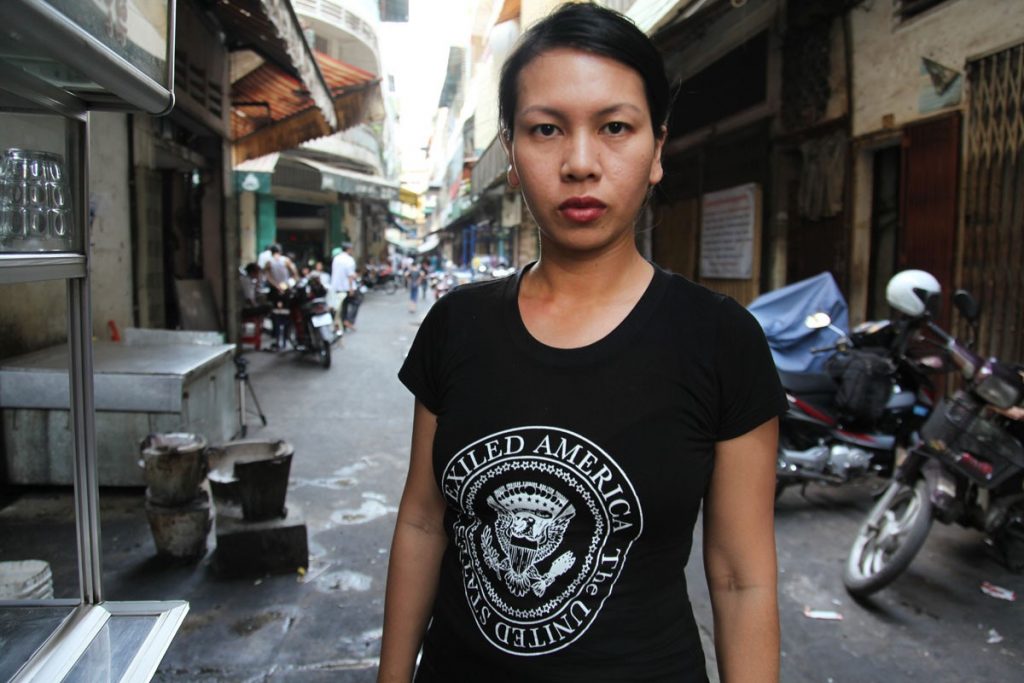Anida Yoeu Ali was born to Western Cambodian parents in 1974. Her parents hailed from Battambang the capital city of Western Cambodia.
During the war in Cambodia, which led to the invasion of the Vietnams, Anida’s family left their country for Thailand in 1979 and stayed in a refugee camp, but they moved again to Malaysia and finally settled in the United States. Anida spent most of her younger days in Chicago.
Anida holds two bachelor’s degree first in Fine Arts (B.F.A) obtained from the University of Illinois in 1996 and B.F.A in Graphic Design from the University of Illinois Urbana- Champaign. She also has a master’s degree in Fine Arts (M.F.A) obtained from the Art Institute of Chicago in 2010.
In 2011, she moved to Phnom Penh, where she got the inspiration that led to the creation of her most famous work, The Buddhist Bug.
Anida is often referred to as a Cambodian-American artist based on her origin and diasporan nationality. She is a first-generation Muslim-Khmer woman whose work is a unique one and stands out from most other artistic works because it comprises of; performance, art installation, videos, political agitation, public encounter, and images.
The uniqueness of her work, rest on her multidisciplinary approach to art-making which is directly focused on Installation.
Installation art is an artistic genre of three-dimensional works that often are site-specific and designed to transform the perception of a space.
Her installation and performance works explore the artistic, spiritual and political combination of multinational identity.
One of her works The Buddhist Bug was featured at the muse d’art Contemporain in France and at the Queensland art gallery in Australia in 2015.
The Buddhist bug was inspired by Ali’s returned to Cambodia, where she tries to express her observation about Cambodia’s changing rural and metropolitan landscapes, and her culturally mixed background having left the United States.
She has received grants from the Rockefeller Foundation, Ford Foundation, the National Endowment for the Arts, and the Illinois Arts Council.
Her work has also been archived with the Smithsonian Asian Pacific American Program.
She once served as an assistant professor of International Studies at Trinity College from 2015 to 2016.
She is a collaborative partner with Studio Revolt, a trans-nomadic artist-run media lab.
Currently, she teaches and also does research as an Artist-in-Residence for the University of Washington (Bothell).
Her researches focus on artistic storytelling and how people can make their stake in the world through doing so.
Anida has also been recognized via various awards and recognitions such as the Sovereign Asian Prize in Hong Kong which she received in 2015.




